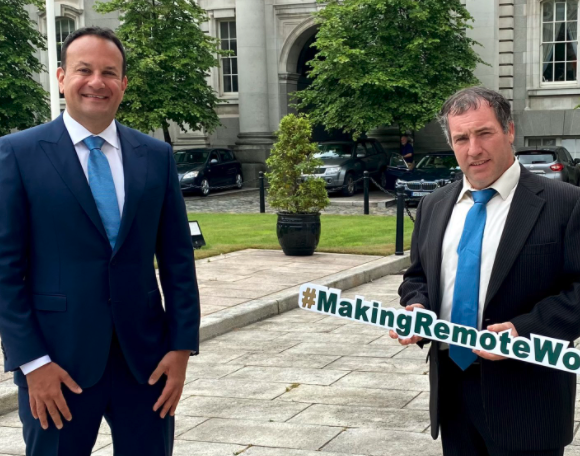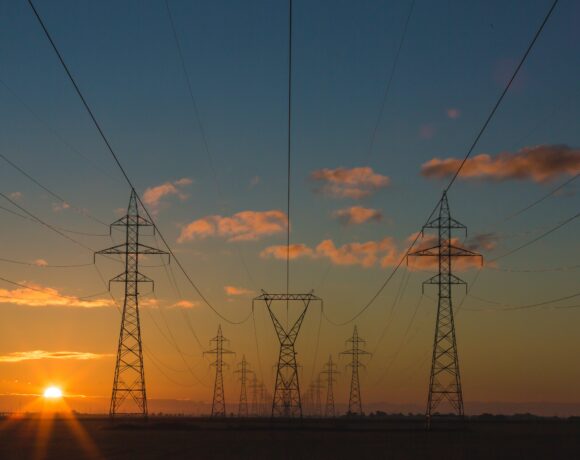Blockchain is moving beyond its buzzword status and gaining momentum across a number of sectors. It is already changing the face of finance; its next challenge will be government.
You might have heard the name in relation to fintech, or that cashless currency, bitcoin, but those aren’t the only reasons you should be taking note of it. This latest phenomenon is blockchain. People are calling it the biggest technological innovation since the internet – and if you think that’s just hyperbole, you might want to reconsider. Right now blockchain is burning through the financial sector at ferocious speed. Though many bankers would not be able to tell you exactly what it is, that doesn’t mean that they aren’t clamouring to adopt it for fear of being left behind. And bankers aren’t the only ones who should be thinking this way. The advantages of blockchain aren’t limited to finance; that was just a logical starting point considering its connection to new forms of currency known as cryptocurrency. It will soon play a major role in nearly every sector, across business and even government.
What is blockchain?
At its most basic level, blockchain is a digital ledger that records data and transactions. Bitcoin – blockchain’s most famous application so far – is not a blockchain in itself but merely built on one. Blockchain is like iOS or Android, it is an operating system that other applications can build on top of. What gives it its revolutionary potential is that it can provide an incomparable level of digital security, as well as a high level of transparency. Just consider how bitcoin compares to other players in the finance industry; banks, insurance companies, credit card companies have all been hacked repeatedly, at huge financial cost, but to this day bitcoin has never been breached. The reason for this is because blockchain is a distributed computing environment; its data is located everywhere rather than in one vulnerable, centralised location.
Furthermore, blockchain ledgers are open and transparent. Any transaction can be tracked and identified. On the blockchain it is much harder to conduct bad business practice, or illegal or unethical practice. If an organisation was to make an incredibly risky credit swap or investment, people or other organisations would be able to see them do it. The same would apply for government. The transparency of blockchain, if used in governance, would create a degree of accountability never before seen.
Perhaps the best way to think about blockchain is to use traditional banking as an analogy. If the blockchain were the entire history of a bank’s transactions, then a single block within the blockchain would be a single bank statement. The difference here between the bank and the blockchain is that the blockchain is not controlled by a single organisation. Any block added to the chain has to be verified by a majority consensus of participants in the system. In a large enough chain, no single entity would be powerful enough to manipulate the system. Such attributes have very obvious application to any kind of organisational governance.
Donal O’Mahony, Professor in Computer Science at Trinity College, explains: “The blockchain systems we see today capitalise on this shared-ledger idea. If you strip down a lot of business transactions (stock trades, transfers of property etc), they mostly consist of writing very simple stuff into ledgers. The problem is that everyone has their own ledger and if you want to get something done, you have to deal with the many different people whose job it is to maintain them. It also adds time and lots of expense.
“Therefore blockchains have great potential to speed-up business processes if communities (stock traders, gold dealers, governments) can agree on a single ledger and the rules around who can update it. In lots of cases, this can take out 80% or more of the cost of these processes while reducing days, weeks or months to seconds.”
How can blockchain benefit government?
If one was to compare blockchain development to the development of the internet, they could say that blockchain is now approximately where the internet was in 1990; the first web server and browser had been invented, but they didn’t have widespread use yet, the internet was a long way away from discovering its full potential. In other words, blockchain still hasn’t found its google. Nevertheless, governments around the world are beginning to make significant commitment to the technology.
Speaking about the benefits of blockchain for local government, Professor O’Mahony said: “Local governments should have a good hard look at their computerised systems and look beyond the detail into what the fundamental process is. If they are spending lots of money moving simple data between the ledgers of different organisations, then there is good scope for blockchain to help. Of course, there are possibilities of blockchain playing a big role in helping to establish digital identities for people. If this takes off then virtually every way in which they deal with the public which currently involves a hand-signed document could be up for grabs. Lots of people think voting could be undertaken safely with the aid of blockchain technologies.”
Indeed, these uses and more are already being enacted. The Australian government-owned Australia Post has unveiled plans to conduct tests through digital voting via the blockchain technology in a bid to reduce costs and improve efficiency. The idea being that the blockchain will create a tamper-proof system that would eliminate manipulation, provide traceability, but still deliver anonymity.
In Estonia the government has established an e-residency program where anyone in the world can apply to become an e-resident of Estonia. In return, residents receive a digital ID card with a cryptographic key to securely sign digital documents, eliminating the need for ink signatures on official paperwork.
The UK is exploring the use of a blockchain to manage the distribution of grants. Monitoring and controlling the use of grants is incredibly complex, and subject to potential fraud or abuse. The transparency that blockchain provides has the potential to eliminate abuse fraud cases.
Another emerging area of focus is in government land registries. The Republic of Georgia, for example, is developing a blockchain project focused on this goal and spearheaded by their National Agency of Public Registry. Ghana, in West Africa, is working on a similar project. The driving element in each of these cases is to make a statement against the perception that these countries have corrupt practices, which will help attract foreign investors.
Sweden is planning to place real estate transactions on the blockchain so that all parties involved in the transactions – banks, government, brokers, buyers and sellers – would be able to track the progress of the agreement once it is completed. This will enable instantaneous confirmation of valid transactions with the utmost levels of security and integrity.
One of the biggest commitments to blockchain technology in government comes from Dubai, where the Crown Prince announced a strategic plan that will see all government documents secured on a blockchain by 2020. The Dubai government estimates its blockchain strategy has the potential to generate 25.1 million hours of economic productivity each year in savings, while reducing CO2 emissions. They expect the blockchain project will contribute to increased government efficiency by creating a new digital layer for city transactions. Furthermore, they believe that once the documents have been moved to a blockchain the project will create business opportunities for the private sector. Industries Dubai expects to benefit from the transition include real estate, banking, healthcare, transportation, urban planning, smart energy, digital commerce, and tourism.
Though these projects are large-scale, and nationally implemented, there is every reason why smaller municipality, towns or cities should be looking into blockchain too. Given the early stage of blockchain technology, it is a lot easier to implement solutions at smaller scales first, in jurisdictions of a few thousand citizens, instead of larger cities of more than a million inhabitants.
For any government entity there are four main categories of activity:
Verification: Licenses, proofs of records, transactions, processes or events. Did this event take place? Was this service performed on this piece of equipment? Does this person have the right permit?
Movement of assets: Transferring money from one person/entity to another; enabling direct payments, once a work condition has been performed.
Ownerships: Land registries, property titles, and any type of real estate ownership. The blockchain is a perfect keeper of the chain of custody for any physical asset.
Identities: Government, cities should issue blockchain e-identities to its citizens, enabling them to securely use services like voting. An e-identity could become similar to a passport, allowing its holder access to a variety of services and rights.
The blockchain field is still very much in its infancy. It will require a monumental amount of development before it has the infrastructure required to make a significant impact. However, if the world of cryptocurrency is anything to go by, despite the many challenges it has faced, the relentless progress of blockchain is as irreversible as the digital ledgers it maintains. Now is the time for government, on a national and local level, to take the first step towards blockchain implementation. The technology is here. It just needs to be used.













